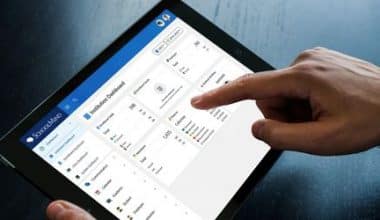Every company prepares a financial account that primarily focuses on the coordination and reporting of the company’s financial transactions to outsiders, which can be stakeholders and lenders. Meanwhile, managerial accounting focuses on internal reporting to aid decision-making and prediction. Instead of focusing on finding a permanent solution, it focuses on providing information that would lessen the impact of a problem. In this article, we will explain what managerial accounting is, who is a managerial accountant, managerial accounting vs. financial accounting, and the functions of managerial accounting and finance.
What is Managerial Accounting?
This is a type of accounting that focuses on finding, measuring, analyzing, and interpreting accounting data so that managers can use it to make wise decisions on the day-to-day running of the company. Managerial accounting functions as the fortune-teller of a company; it is primarily for internal purposes. It allows businesses to identify and reduce unnecessary spending and maximize profits within a period of time. However, it is not for external users.
Furthermore, managerial accounting performs great functions for any company. It focuses on internal reporting to support decision-making as opposed to financial accounting, which primarily concentrates on the coordination and reporting of the company’s financial transactions to outsiders.
How Does Managerial Accounting Operate?
Managerial accountants gather financial data from various departments of a business to produce financial statements that highlight areas of concern and opportunities for growth, using accounting principles as a lens to view the enterprise as a whole. However, by utilizing this accounting information, the organization’s decision-makers can then modify strategy and structure as necessary.
Meanwhile, in order to transform data into information that the management of the company can use in their decision-making process, managerial accountants must analyze a variety of events and operational metrics. The goal of management accounting is to use this statistical data to make more informed decisions that will help you manage your company’s growth and day-to-day operations. Standard costing, marginal costing, project appraisal, and control accounting are a few simple-to-understand techniques used in managerial accounting.
Managerial Accountant
A managerial accountant is any person or professional in charge of carrying out managerial accounting for a company. Managerial accountants gather information and build reports that aim at helping managers and executives within the organization make decisions. They use information relating to the cost and sales revenue of goods and services generated by the company. Companies use this data to create a report for management that they can use for planning and managing their affairs.
Every company expects that its managerial accountant possesses strong accounting abilities. These accounting abilities entail a fundamental understanding of tax laws, compliance, and financial reporting. Managerial accountants also need communication skills, which are important for making a clear presentation of account statements to the management. The best managerial accountants are those who can inform and persuade the decision-makers in an organization. Having expertise in human capital management and financial capital management is a must.
There are qualifications for anyone who wants to be a managerial accountant.
Managerial Accountant Requirements are
- A bachelor’s degree in accounting or finance.
- Preferably a certified management accountant (CMA).
- Several years of management accounting expertise in a related industry.
- knowledge of accounting and business management software.
- Extensive understanding of financial rules and accounting regulations.
- Good analytical and mathematical skills.
- Possess management skills, like leadership skills, problem-solving skills, and excellent communication abilities.
Functions of Managerial Accounting
Managerial accounting can perform a wide range of functions, but the list of the most common ones is provided below.
- Companies use it in forecasting and managing their overall cash flows, to know what to expect from a specific product line, customer base, or store.
- This accounting helps with maximizing profits by coordinating various strategies, including budgeting and financial reporting, which help the organization become more efficient. It helps the company manage its profitability.
- Companies use it to analyze trends by reviewing the trend lines of different costs incurred to check for any unusual departures from the long-term pattern and report these changes to the management.
- It provides a clear understanding of where a company’s main constraints are and how they affect the company’s profit capacity.
- For inventory valuation, it is essential to calculate the direct costs of inventory items and the cost of goods sold, as well as allocate overhead expenses to these items.
- It aids in the design of new products by adding up the costs of new designs, comparing them to target cost levels, and reporting this information to management.
- For transactional analysis, a managerial accountant might examine individual transactions after spotting a variance through trend analysis in order to identify underlying data and determine what specifically caused the variance.
- The management accountant creates a number of reports to inform superiors of the findings, inspire workers, exert effective control over their behavior, and help management make wise decisions. Additionally, he updates the public on the status of the company through published accounts and returns.
Financial Accounting vs Managerial Accounting
- Financial accounting is only concerned with making a profit; it is not concerned with the overall operation of the business. In contrast, managerial accounting searches for operations that experience tailbacks and considers various strategies for boosting profits by resolving tailback problems.
- Its reports may be issued more frequently to provide managers with relevant information they can act on immediately, while financial statements are due at the end of an accounting period.
- The goal of financial accounting is to produce financial statements that can be distributed to internal and external stakeholders as well as the general public. While the goal of managerial accounting is to provide account statements for the company’s internal sharing and operational reporting.
- Financial accounting examines the entire company, while managerial accounting provides more in-depth reporting. Managerial accounting focuses on in-depth reports like profits by product, product line, customer, and geographic region.
- Companies make use of financial accounting to demonstrate a company’s profitability and efficiency vs managerial accounting, which provides information on the root causes of problems and potential solutions.
- Considerable precision is needed to prove that financial records are correct. Financial accounting relies on accurate data for reporting, while managerial accounting frequently deals with estimates as opposed to proven facts.
- Companies prepare managerial accounting for internal consumption because there is no set of standards to compile that information. On the other hand, financial accounting must follow various accounting standards.
- Financial accounting is historically oriented because it examines financial results that have already been attained by looking at the past. With forecasting, managerial accounting takes a look ahead.
- Financial accounting is concerned with determining the correct value of a company’s assets and liabilities vs managerial accounting, which focuses only on the impact these things have on a company’s productivity.
What Are the Importance of Managerial Accounting?
- Tracks and measures performance
- Supports project management decisions
- Directs budgeting, forecasting and planning
- Budget forecasting.
- It helps identify bottlenecks and constraints.
- Strategic planning.
What Are Management Accounting Methods?
- Capital budgeting. Analysis on information concerning capital expenditures.
- Inventory valuation and product costing
- Trend analysis and forecasting
- Margin analysis
- Constraint analysis. Monitors the constraints on cashflow and profits
- Cashflow analysis
Objectives of Management Accounting
- Provide accurate data for business decisions
- Maximize profits while minimizing losses.
- Proper planning and policy formulation
- Motivates employees
- Helps in organizing
- Reporting.
Functions of Management Accounting?
- Forecasting and planning.
- Coordinating
- Organizing
- Accountability
- Overall decision making
- Staffing and control.
Conclusion
It is evident that managerial accounting is a crucial task and that it contributes significantly to organizational decision-making. It supports managers in making defensible business decisions and equips them for any foreseeable emergency. Since they assist the managers in resolving current problems and identifying potential lucrative business opportunities, their roles are also known as advisory roles. Therefore, management accounting is necessary for analyzing and recording financial information, which can be used by a company to increase its efficiency and productivity.
Managerial Accounting FAQs
What do managerial accountant do?
He is in charge of carrying out managerial accounting for a company. Managerial accountants gather information and build reports that aim at helping managers and executives within the organization make decisions. They use information relating to the cost and sales revenue of goods and services generated by the company.
How do I become a management accountant?
There are qualifications required to be attained by anyone who wants to be a managerial accountant.
Management Accountant Requirements are
- A bachelor’s degree in accounting or finance
- A certified management accountant (CMA).
- several years of management accounting expertise in a related industry.
- knowledge of accounting and business management software.
- extensive understanding of financial rules and accounting regulations.
- good analytical and mathematical skills.
- Possess management skills, like leadership skills, problem-solving skills, and excellent communication abilities.
What is the managerial accountant sometimes called?
Managerial accounting is also known as cost accounting or management accounting. It is primarily used for internal purposes. It allows businesses to identify and reduce unnecessary spending and maximize profits. However, managerial accounting is not for external users.
Related Article
- HOW TO CALCULATE COST OF GOODS SOLD: Definition & Formula
- MANAGEMENT ACCOUNTING: A Comprehensive 2023 Guide (Updated)
- EFFECTIVENESS Definition & How to Scale Any Business in 2023
- EQUITY FINANCING: Types, Sources, Advantages & Disadvantages
- Business Accounting Guide: (+ Free Samples & Courses)






